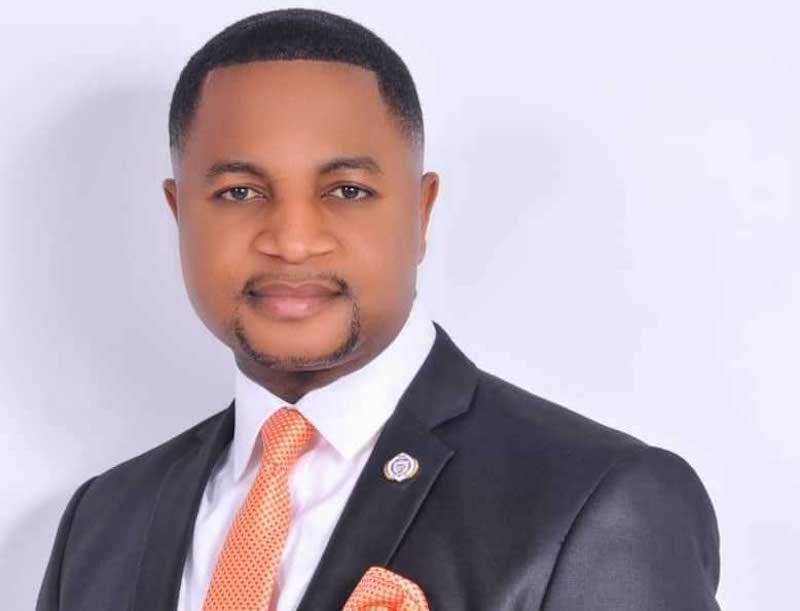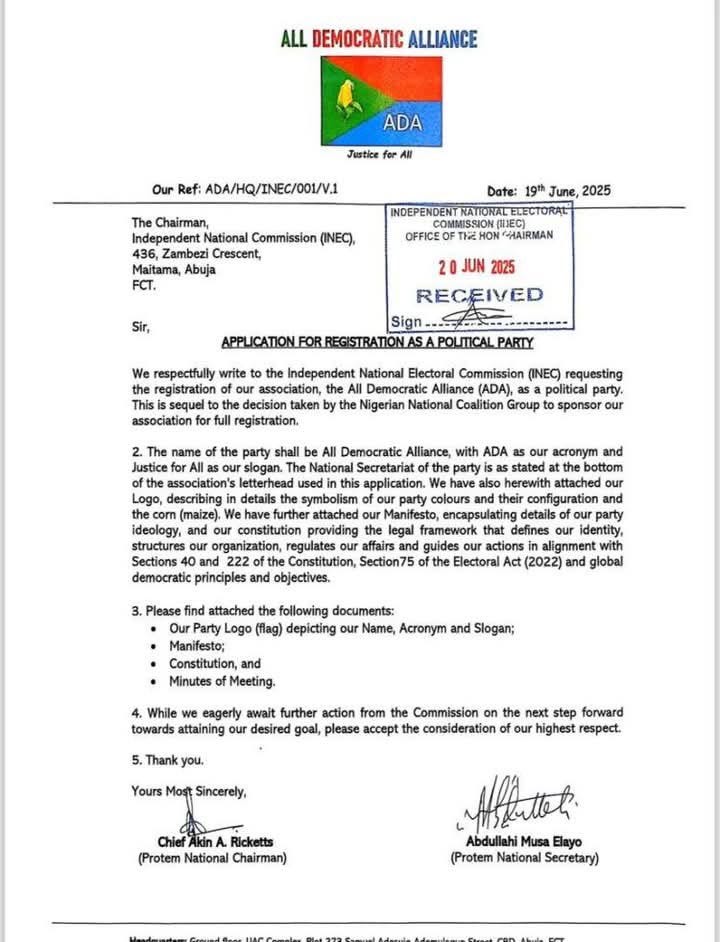Name and Shame
A very cynical start to campaigning for Nigeria's 2027 elections
Felix Nicolas caught a lucky break that most Nigerians only dream of. In 2004, he won the US Visa Lottery and made his move to America. Born in Auchi, Edo State in 1981, he grew up under the towering influence of Archbishop Benson Idahosa - the larger-than-life figure whose Church of God Mission International dominated Benin and much of Nigeria in those days. Though Nicolas had earned a diploma in electronics from Federal Polytechnic Auchi, America pulled him back to his spiritual roots. He pursued Biblical Studies at a Florida university and then a doctorate in Divinity in New York.
Ten years after moving to the US, he set up his own church Miracle Centre International. Before this time, it had been a gathering of people for prayer meetings which steadily grew until it reached 250 people by the time of the church’s official inauguration. As the General Overseer of Miracle Center International, with branches in New Jersey, Texas, Atlanta, and Nigeria, Nicolas hosted "Power for Miracles with Dr. Nicolas Felix" on The Word Network, reaching over 200 nations, and on the Africa Christian Broadcasting Network (ACBN). He also authored books like "Moving Forward" and "The God of A Second Chance" and ran several businesses like Bathshua Business Group Inc., Victory Security Company, and Adiel Real Estate & Development Company LLC. He generated publicity for his church by doing things like free gas giveaways in New York.
Nicolas never forgot where he came from. In Nigeria, he rolled out humanitarian programs like free kerosene distributions in Benin City and Ibadan in 2018, monthly salaries for widows, and a new church building in Ogochi village, Edo State, completed in 2017.
Work smart, not hard
It is not clear how all of this led him to decide to run for President in Nigeria but embark on the journey he did. In 2018, he tried to obtain the ticket for a party called the All Blending Party (ABP). Presumably after paying money and being promised the party’s ticket, he realised he had been scammed when the venue of the party’s primary was changed without notifying him. With less than 24 hours before the deadline for parties to select their candidates, that familiar Nicolas luck kicked in again. He scrambled into the People's Coalition Party (PCP) and, at 37, became one of the youngest presidential candidates in Nigerian history for the 2019 election when the party handed him their ticket.
Nicolas's platform focused on security, with him running on a promise to address Nigeria's safety concerns, because, as he claimed, he left Nigeria due to insecurity. He also did a number of free giveaways in line with the humanitarian efforts he had been carrying out before he went into politics. But the real story of his campaign was that, less than two weeks to the election, he endorsed Atiku Abubakar of the PDP. “I have been able to identify amongst my fellow presidential candidates a man of undeniable political and business exploits whose track records and ideals align vividly to what we believe in, To Make Nigeria Work Again.” he said at the press conference in Abuja where he announced his endorsement.
The unknown factor didn't hurt him. When votes were counted, lucky Felix Nicolas landed third place with over 110,000 votes, beating plenty of bigger names and better-funded parties. It didn't take long to figure out the logic behind this American returnee's surprise showing.
In a presidential race packed with more than 70 candidates - many of them comedians, chancers, time-wasters, and the genuinely delusional - ballot real estate and position becomes everything. The ballot paper unfolds like a biblical scroll, and with Nigeria's high illiteracy rates, election day can turn into pure farce as voters struggle to find the logo of the party they are after. The PCP sat right next to the PDP (with similar colours, no doubt a deliberate choice) in the middle of the ballot paper and so as voters scrolled down looking for the well known PDP to cast their votes for, many votes mistakenly landed on the PCP.
Lessons must be learned
Trust Nigerian politicians, cynical as ever, to learn a couple of lessons from this, albeit not the ones you might expect. The first is that - as has been known for a while - try to make sure your party is as close to the top of the ballot paper as possible i.e. make sure when naming your party that its initial starts with an A. The second important lesson is that confusion can pay sizeable dividends. If you're a nobody party struggling for recognition, just steal the branding of someone more popular and hope voters can't tell the difference.
All of these lessons were on display when a coalition of heavyweight opposition (and disgruntled) politicians unveiled the vehicle with which they plan to retake power from the incumbent APC in the 2027 general election. Last week they announced the imaginatively named All Democratic Alliance (ADA) and their intention to register it as a political party.
In a clever bit of political theater, they adopted corn as their party logo. While the APC waves around its broom symbol, corn has become deeply woven into President Tinubu's political identity over the past few years. His supporters get mocked as "agbado boys" (Yoruba for corn). When someone suddenly starts singing Tinubu's praises, people say he's "eaten corn." The symbolism runs deep in many other ways.
Nigerian democracy keeps finding new lows, with politicians flaunting their cynicism like a badge of honour.
As the great Chinua Achebe famously did not say: let no one be fooled by the fact that we practice democracy for we intend to do unheard of things with it.




Haha. The way this article ended was totally different from what I had in mind. I was expecting something new with Felix. You also omitted that he ran under APC in ‘23 and ended up endorsing Tinubu on the night of the election, while giving a speech about representing the “youths”.
Meaning it's now just business for him with a 4 year comical cycle